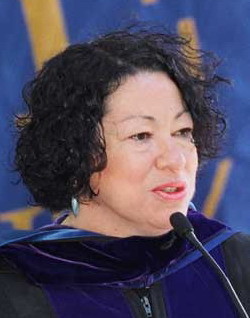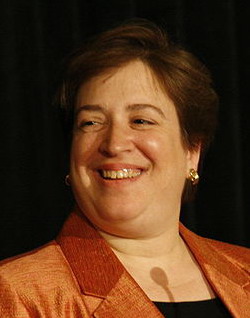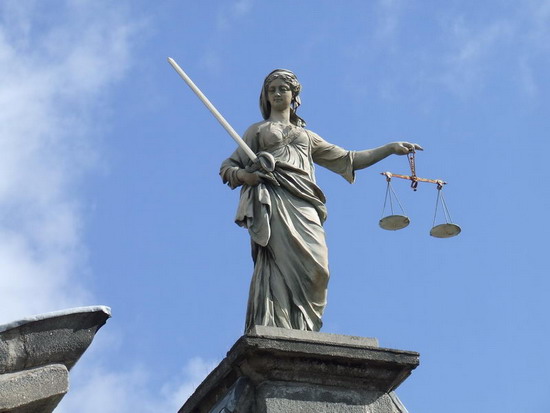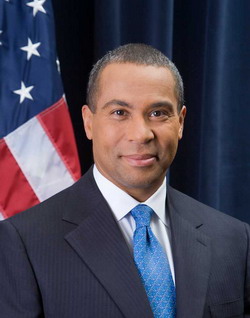![]() The following listed candidates are possibilities for retiring Justice David Souter replacement on our Supreme Court. This list was complied last November by Salon.com and the New York Times. Salon’s panel consisted of the following:
The following listed candidates are possibilities for retiring Justice David Souter replacement on our Supreme Court. This list was complied last November by Salon.com and the New York Times. Salon’s panel consisted of the following:
- Thomas Goldstein, head of the Supreme Court practice for Akin Gump Strauss Hauer & Feld
- David Yalof, associate professor of political science at the University of Connecticut Quantcast
- Cass Sunstein, University of Chicago law professor and Obama advisor
- Charles Ogletree, Harvard Law School professor and Obama advisor
- Lucas A. Powe Jr., Supreme Court historian at the University of Texas School of Law
- Robert A. Levy, chair of the Cato Institute
As for my recommendations of who should to become our next Supreme Court Justice, I’ll have to punt and save that for an additional posting, once all the “chatter” on the net has subsided. However, I do believe President Obama’s choice will either come from the First or Ninth Circuit Court of Appeals (map pdf).
The Candidates:
Sonia Sotomayor:
 After growing up in a Bronx housing project, Sotomayor has risen to become a judge on one of the most powerful courts in the land: the U.S. Court of Appeals for the 2nd Circuit. As a Hispanic woman, Sotomayor would make an attractive candidate if Obama is looking to diversify the court. There has never been a Hispanic on the Supreme Court, and there is only one woman currently on the bench, Ruth Bader Ginsburg. Sotomayor might also have bipartisan appeal. She is politically moderate, and President George H.W. Bush appointed her to her first judgeship.
After growing up in a Bronx housing project, Sotomayor has risen to become a judge on one of the most powerful courts in the land: the U.S. Court of Appeals for the 2nd Circuit. As a Hispanic woman, Sotomayor would make an attractive candidate if Obama is looking to diversify the court. There has never been a Hispanic on the Supreme Court, and there is only one woman currently on the bench, Ruth Bader Ginsburg. Sotomayor might also have bipartisan appeal. She is politically moderate, and President George H.W. Bush appointed her to her first judgeship.
Additional information regarding Judge Sotomayor from the NY Times:
Sonia Sotomayor has been a judge of the United States Court of Appeals for the Second Circuit since 1998. Before joining the appeals court, she served as a United States District Court judge for the Southern District of New York.
She has been mentioned as a possible replacement for Justice David H. Souter, who plans to retire from the Supreme Court in June.
In what may be her best-known ruling, Judge Sotomayor issued an injunction against major league baseball owners in April 1995, effectively ending a baseball strike of nearly eight months, the longest work stoppage in professional sports history, which had led to the cancellation of the World Series for the first time in 90 years.
On the district court bench, Judge Sotomayor earned a reputation as a sharp, outspoken and fearless jurist, someone who does not let powerful interests bully, rush or cow her into a decision. “She does not have much patience for people trying to snow her,” said one lawyer in 1995, who had cases pending before the judge and asked not to be identified. “You can’t do it.”
While still in her 30s, Judge Sotomayor became the youngest judge in the Southern District of New York. She was the first American of Puerto Rican descent to be appointed to the Federal bench in New York City.
Born in the Bronx on June 23, 1954, she was diagnosed with diabetes at the age of 8. Her father, a factory worker, died a year later. Her mother, a nurse at a methadone clinic, raised her daughter and a younger son on a modest salary.
Judge Sotomayor graduated from Princeton University summa cum laude in 1976 and became an editor of the Yale Law Journal. She spent five years as a prosecutor with the Manhattan District Attorney’s office before entering private practice.
But she longed to return to public service, she said, inspired by a “Perry Mason” episode she saw as a girl. In 1992, Senator Daniel Patrick Moynihan recommended the politically centrist lawyer to President George H. W. Bush, making good on a longstanding promise to appoint a Hispanic judge in New York.
Since then, Judge Sotomayor has demonstrated a willingness to take the government to task whenever she believes the circumstances warrant it. She has taken strong anti-government positions in several decisions, including cases involving the White House, the religious rights of prisoners and even the Hell’s Angels. During her first year on the appeals bench, she received high ratings from liberal public-interest groups.
As the first African-American governor of Massachusetts and a friend of Barack Obama’s, Patrick is often mentioned as a potential Supreme Court nominee. Patrick would bring something that is in short supply on the court: executive experience. But he would also bring a major risk: He has never served in the judiciary. Despite that gap in his résumé, he has some background in the law. Before he was governor, Patrick was a lawyer and President Clinton appointed him the assistant attorney general for civil rights in 1994 — the nation’s highest civil rights position. Patrick is solidly liberal and supports a number of positions, such as same-sex marriage, that could make him a target for Republicans during the confirmation process.
Elena Kagan:
 Few names have been floated as often as a potential Obama nominee as Kagan, the dean of the Harvard Law School — Obama’s alma mater. Like Obama, she also taught at the University of Chicago. Kagan served in Clinton’s White House as an associate counsel and domestic policy advisor. Clinton nominated her for a position on the prestigious U.S. Court of Appeals for the District of Columbia Circuit, but Republicans stalled her approval. Kagan clerked for Supreme Court Justice Thurgood Marshall.
Few names have been floated as often as a potential Obama nominee as Kagan, the dean of the Harvard Law School — Obama’s alma mater. Like Obama, she also taught at the University of Chicago. Kagan served in Clinton’s White House as an associate counsel and domestic policy advisor. Clinton nominated her for a position on the prestigious U.S. Court of Appeals for the District of Columbia Circuit, but Republicans stalled her approval. Kagan clerked for Supreme Court Justice Thurgood Marshall.
Additional information regarding Judge Kagan from the NY Times:
Elena Kagan is the first woman to hold the position of solicitor general, and is considered a leading candidate to replace Supreme Court Justice David A. Souter, who has told associates that he intends to resign.
The solicitor general, who is the only federal official required by statute to be “learned in the law” and is sometimes referred to informally as “the 10th justice,” supervises appellate litigation involving the federal government and presents the government’s views to the Supreme Court.
Before becoming solicitor general, Ms. Kagan was dean of Harvard Law School. She brought with her a powerful and varied résumé and has produced a substantial paper trail. But she has provided few clues about where she stands on the great legal issues of the day, notably the Bush administration’s broad assertions of unilateral executive power in areas like detention, surveillance, interrogation and rendition. She did offer a glimpse of her views in a 2001 article in The Harvard Law Review that considered the “unitary executive” theory.
The phrase is sometimes used as shorthand for the Bush administration’s assertion that it has broad powers that cannot be limited by Congress or the courts. In her article, Ms. Kagan addressed an earlier and narrower meaning of the phrase, one made popular during the Reagan administration, concerning the scope of the president’s power to control the executive branch itself.
She found that such presidential control “expanded dramatically during the Clinton presidency,” a development she largely welcomed. But she said Congress, experts and interest groups should also play a role in informing the executive branch’s actions.
“I do not espouse the unitarian position,” Ms. Kagan wrote. “President Clinton’s assertion of directive authority over administration, more than President Reagan’s assertion of a general supervisory authority, raises serious constitutional questions.”
Ms. Kagan, whose scholarly interests include administrative law and the First Amendment, is widely credited with bringing harmony and star faculty members to the notoriously dysfunctional Harvard Law School.
She served as a lawyer and policy adviser under President Bill Clinton, who nominated her to the United States Court of Appeals for the District of Columbia Circuit. That nomination stalled in the Senate.
Before her nomination, Ms. Kagan had never argued a case before the Supreme Court. Early in her career, Ms. Kagan served as clerk to Justice Thurgood Marshall, who ascended to the court after serving as solicitor general. Justice Marshall called her, Ms. Kagan once wrote, “to my face and I imagine also behind my back, ‘Shorty.
Continue reading ‘Supreme Court Candidates for Justice David Souter’

